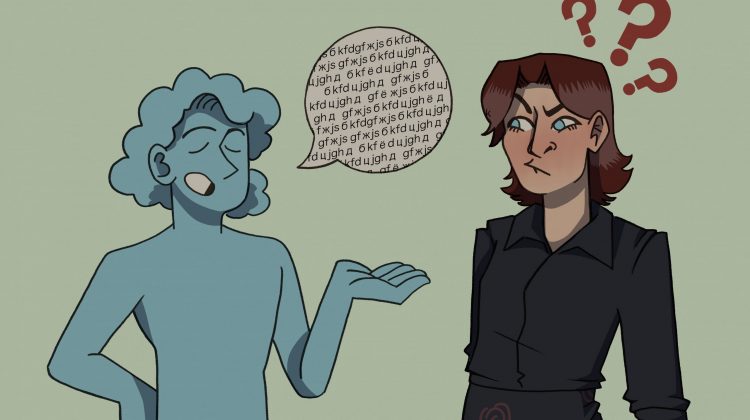No hablo español. That means “I don’t speak Spanish” in Spanish. I just googled it.
I went to New Jersey and New York for the first time ever last weekend, which I’ll dive into in more detail in a future column.
Anyway, I went because my friend Dee invited me to come stay for a day with her boyfriend’s family in New Jersey.
Dee is from Curaçao and speaks four languages. Her boyfriend, Jonathan, is from Aruba and speaks four languages as well. His family is from Colombia and predominantly speaks Spanish.
I am from Spearfish, S.D. and barely speak English.
I’ve thought for a while now that it wouldn’t hurt to pick up my Spanish where I left off in high school.
I first thought of this when I was in sales following my move to Massachusetts. Potential customers would fall from my feeble monolingual grasp the second they said they only spoke Spanish. My coworker, who was born in the Dominican Republic and lived in Lynn, would swoop in, speaking his native language, securing the sale for himself.
The second thought came to me when I became the Lynn reporter here at The Item. Lynn has a large Hispanic population, and I feel as if I could understand the community I cover better if I could speak the language of many residents.
The third thought came when I went to New Jersey, cementing what I had been acutely aware of for some time now: I should never have listened to my mom all those years ago.
When signing up for classes at the end of my sophomore year of high school, I hit a snag. Trigonometry was at the same time as Spanish 3.
My mom is the chief operating officer and president of an engineering company, so math has always been incredibly useful to her. She told me that I had to take trigonometry, and I could pick up Spanish again in my senior year.
Well, I never went back to Spanish, and I couldn’t even tell you what type of triangle is which.
My mom should have known that taking trigonometry would not get me far in life. I had purple hair at the time and never went to school without a choker necklace and a Nirvana T-shirt. She should’ve judged the book by its cover.
But in actuality, it’s not her fault. Duolingo exists now, and I have free will.
In New Jersey, I told Jonathan’s family that I spoke “un poquito,” or “a little bit,” of Spanish. For the five years that Dee has been dating Jonathan, she has told his family the same thing about herself.
Dee’s “little bit” of Spanish is like most Americans’ English: extremely good, but a little grammatically incorrect sometimes. My “little bit” of Spanish is just that. I know how to say “un poquito.”
Jonathan’s uncle said something back to me, and I looked back at him with a smile and not a thought behind my bright blue eyes.
“When I said ‘un poquito,’ I meant that’s where my Spanish starts and ends,” I jokingly said back. Everyone laughed and said it’s OK, and they spoke to me in decent English for the rest of the night.
I had a wonderful time with the family, and whatever they couldn’t translate to English, Dee or Jonathan did for them.
The older I get, and the farther away I go from the Midwest, the more I realize that only knowing one language is far from useful when there’s 7,139 officially known languages in the world.
So, I’ve downloaded Duolingo, and I suggest that if you’re monolingual like me, you might want to do the same.

